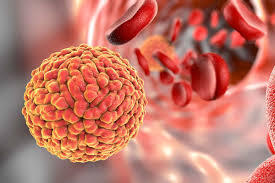Pune: At least 66 confirmed cases of Zika Virus have come out in Pune city of Maharashtra, civic officials said on Tuesday.
“Four patients who tested positive for the virus have died, but their deaths were attributed to pre-existing health conditions, not the Zika infection, they aged between 68 to 78,” officials said.
“Among those infected are 26 pregnant women, who are being closely monitored. Fortunately, most of them are in good health,” they added.
What Is Zika Virus?
This virus is an illness spread by mosquitoes, has become a major health issue worldwide in recent years. Originating in Africa, it has quickly reached many parts of the globe, causing widespread outbreaks and concern among health authorities and the public.
The Origins of this virus: First identified in monkeys in Uganda’s Zika Forest in 1947, the virus saw its first human cases in the 1950s in Uganda and Tanzania. Since then, it has been found in multiple regions including Africa, Asia, the Americas, and the Pacific, primarily spread by the Aedes mosquitoes, specifically Aedes aegypti and Aedes albopictus.
Symptoms and Transmission of Zika Virus
This virus is mainly transmitted through bites from infected Aedes mosquitoes. Its symptoms are generally mild, including fever, rash, joint pain, and conjunctivitis. However, for pregnant women, it can cause serious birth defects like microcephaly and other neurological issues in infants.
Prevention and Control Measures
Preventing mosquito bites is critical to lowering the virus transmission risks. This involves using insect repellent, wearing long sleeves and pants, and staying in air-conditioned or screened areas. Efforts to control mosquito numbers through environmental management, insecticide spraying, and community engagement are also vital parts of this virus’ prevention programs.
This virus infection during pregnancy can cause microcephaly, a condition where the baby’s head is significantly smaller due to abnormal brain development. The virus is spread through the bite of an infected Aedes mosquito, which also transmits dengue and chikungunya.

